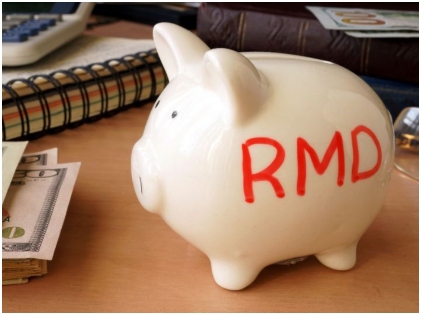It’s that time of the year when people make plans for the new year, try to save money, and cut down on taxes. You are also probably thinking about the money you will have to shell out for your healthcare plans. Don’t worry, you will not be spending more than the standard Medicare Part B, as well as Part D premiums. However, if your MAGI or Modified Adjusted Gross Income on your IRS tax return is over $87,000 per year for the last two years, as a single taxpayer or over $170,000, in case of a married couple, you will have to shell out $144.60. This would be the standard premium amount in 2020.
An addition of IRMAA or the Income Related Monthly Adjusted Amount will reflect in your premium. The IRMAA is determined by four income brackets that are set by the Social Security Administration. Find out how you can avoid hefty Medicare premiums in 2020.
Make an Early Start

Required Minimum Distribution is known as the minimum amount you need to withdraw from your retirement savings account if you are at least 70 and a half years old. If you start availing RMDs or Required Minimum Distributions, which usually begin at the age of 70 and a half, you wouldn’t be entitled to that income.
Individuals who possess large IRAs will have to encounter large taxable RMDs. This is more than sufficient to push you into the IRMAA territory. To avoid such a scenario, you would have to avail Roth IRA conversions from an early stage, most preferably by the time you turn 63 or two years before availing Medicare if you are already enjoying an employer plan post the age of 65. Consequently, IRMAA will not be affected by the conversion of income.
Use Required Minimum Distributions Properly
If you use the minimum distributions from your retirement accounts and don’t need the sum, you can take a QCD or a qualified charitable distribution into account. Another option is to consider a QLAC or a qualified longevity annuity contract.
The taxable RMD in a particular year can come down if you buy a QLAC within an IRA. Even IRA distributions in connection with charitable contributions can have an identical effect.
Contribute To Retirement Accounts

If you are a Medicare recipient who is still working, there are ways to reduce your MAGI or AGI. The simplest and the most effective way is to give your contributions to your 401(k) plan. Deducting the Medicare premiums shouldn’t be tough for those who are self-employed either.
If tax deductions are more, the overall AGI will get lowered automatically. That, in turn, would reduce the Medicare surcharges in the future. Though there isn’t much time left for 2019 to get over, you can still set up a Solo 401(k), which would eventually reduce your AGI by almost $62,000.
Shell Out Medicare Premiums with the Help of Your HSA
In case you have an HSA, you can consider utilizing the funds to shell out your Medicare premiums. The money that you take out from your HSA will be tax-free if it is for eligible spending. This would help you come down to a lower Medicare surcharge level. You can pay your Medicare Part A, Medicare Part C, as well as Medicare Part D premiums with the help of your HSA funds. The worst part is you can’t pay Medicap premiums from your HSA.
Report Any Drop In Your Earnings

If there is a change in your financial condition, there are high chances that you can get a reassessment of your Medicare surcharges. This could be because of a decrease in your income owing to reasons like retirement, divorce, marriage, etc.
You can use the SSA-44 form, which highlights the requirement in detail. Year-end tax planning might prove to be useful for those who receive Medicare.
The year-end is the best time to review where your income might fall. If you intend to wait until the tax-filing season, you would be unable to work on your money and, therefore, fail to lower the Medicare premiums in the later stages. Do remember that your tax plannings will impact your Medicare premiums in 2021 and beyond.
Hopefully, the above-discussed points would help you reduce your Medicare premiums in the year 2020. Start working on planning your taxes and investments better so you have a worry-free start for the new year. All the Best!





